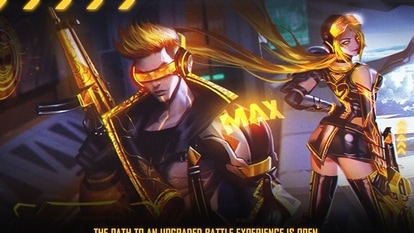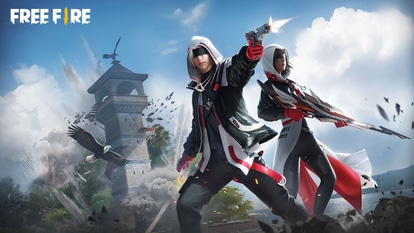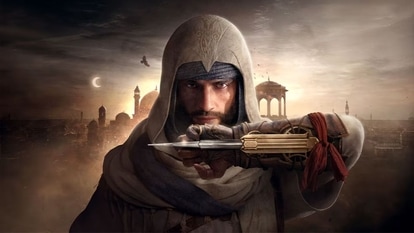Angry words
What happens when a private fight goes public? And how does it affect those who are watching? Are we turning into voyeurs for feuds? Shreya Sethuraman writes.
An ad guru attacks a journalist on Twitter after a book review. A starlet calls a columnist names when her movie is panned. A bestselling author flays a popular actor-filmmaker, alleging appropriation of credit. Are we taking our personal fights to the rest of the world like never before? Or does the ease of venting our emotions on social media catalyse bitter feuds, particularly on Twitter?
The more polarised the comments, the more participation they evoke. People take vicarious pleasure watching celebs engaged in ugly Twitter catfights. Ask columnist-author Shobhaa De. When De tweeted a less than charitable impression of actor Sonam Kapoor's I Hate Luv Stories, she hadn't anticipated the backlash it would invite. When the actor reportedly called De a 'fossil' not to be taken seriously, she wasn't referring to the fashionable watch brand. In hindsight, after tweeting, "These immature…filmi kids," De appears unfazed. "I don't pay the slightest attention to online abuse and immature mud slinging," she told Hindustan Times. In fact the author and social commentator says people Twitter and Facebook are cathartic. "Such platforms are therapeutic, since they can be used to voice rage, frustration and more."
Earlier this month, a critical review of a book that gave out tips on social climbing began trending on Twitter. The author took umbrage over criticism and launched an offensive against a journalist on the microblogging site. Two weeks hence Suhel Seth's Get to the Top: The Ten rules for Social Success had climbed up bestsellers' lists. One of Seth's angry tweets read: "So @mihirsharma reviewed my book for a magazine no one reads. Am not surprised! He is supposedly an unemployed economist for an unread mag!" Seth eventually deleted these tweets. By then hundreds of Netizens had gone twitter happy with some justifying them, others calling them childish, and certain others just deriving pleasure from the feud.
The more contentious feuds might begin on a newspaper or a blog and generate enough heat to spill over to Twitter with the followers siding with one of the two sparring parties. Business Standard opinion editor Mihir Sharma, who wrote the Seth review in Caravan, saw the feud fan out on Twitter almost instantly. In hindsight, he calls it: "A reminder never to do anything at 3 am that goes into a public record." Talking about people getting personal on Twitter, Seth says: "I only use satire and sarcasm in my tweets."
The ease of expressing anger online might be just pushing us towards the edge, says economist and sociologist Susmita Dasgupta. "Our anger needs expression and the Internet acts like a punching bag," says Dasgupta.
Neuro-Psychiatrist Sanjay Chugh says levels of intolerance in the society are keeping pace with rising stress levels. "The venting of anger on Twitter is due to poor impulse control."
A majority of cyber bullying victims who approach Jitendra Nagpal, department in-charge, mental health and life skills education at South Delhi's Moolchand Hospital, are aged between 10 and 40. "Complaints dealing with anticipated misuse of social space are on the rise among young people," says Nagpal. Celebrities may engage in public feuds on the Internet for publicity or brand building, but it could adversely impact their followers most of whom are young. "Watching public feuds on the Internet leads to development of anti-social traits, particularly in young people. Seeing their idols engage in public catfights can eventually lead to instances of cyber bullying and in extreme cases cyber stalking," adds Nagpal.
Mumbai-based marketing consultant Pallavi Singh, 31, has followed most online feuds since she joined it in February 2009. "When actor Aamir Khan mentioned he had named his dog Shah Rukh on his blog, it generated thousands of responses online. For me, this was like washing their dirty linen in public. Why can't people resolve their differences between themselves?" asks Singh.
Karthik Srinivsan, 36, head of digital strategy with communications firm Edelman India, says he may have an answer. "Most times, people who take their feuds to the rest of the world, have an ulterior motive. Otherwise, why can't they simply work out differences over the phone or e-mail? I recall Chetan Bhagat began sniping at NR Narayana Murthy's comment on the declining standards in IITs just a week before the release of his new book. Clearly, Bhagat knows when to attract attention to himself."
One big reason Twitter is the favoured platform for venting emotions is immediacy. Rajesh Lalwani, 41, founder of social media consulting firm Blogworks, likes to draw insights from consumer behaviour online. Lalwani says many Twitter users get a kick out of evoking a response from a person hitherto considered out of their league. "If I can draw a Bollywood star or a global corporation or a minister into a joust, I get instant gratification. Being a broadcast channel, Twitter attracts more such comments unlike Facebook which is a relationship network."
Dasgupta says venting your anger on the Net is a good way of absorbing racial and ethnic hatred. "This is another reason there shouldn't be any gags on the Internet."
If a physical fight turns ugly, says Srinivasan, you can get bruised and can lead to a mob mentality. Something similar happens on Twitter, without the accompanying bloodshed. "However, what you post on Twitter may come back to haunt you as it may be stored somewhere on the Internet," he adds. How does the voyeuristic pleasure that the watchers derive from public feuds reflect on us as a people? "This isn't necessarily a sign of how tech-savvy our society has become. People should understand that the Internet is not a battlefield to air their individual whims. Do whatever you want on a personal note, not in the public," says Nagpal.
Catch all the Latest Tech News, Mobile News, Laptop News, Gaming news, Wearables News , How To News, also keep up with us on Whatsapp channel,Twitter, Facebook, Google News, and Instagram. For our latest videos, subscribe to our YouTube channel.

























